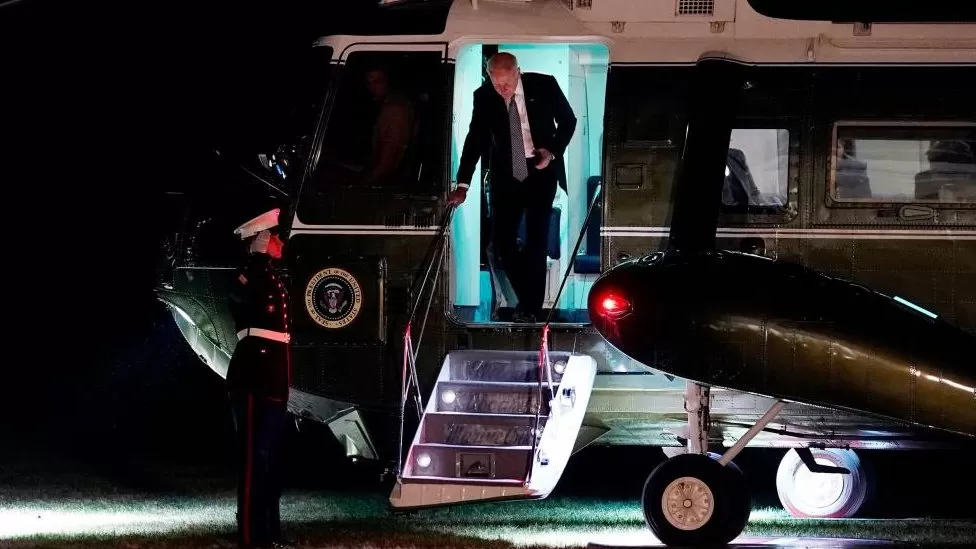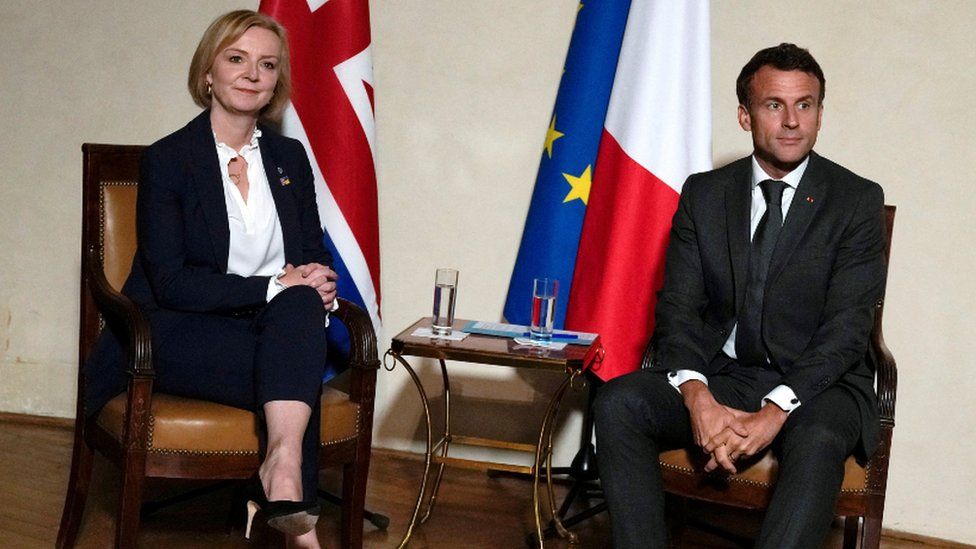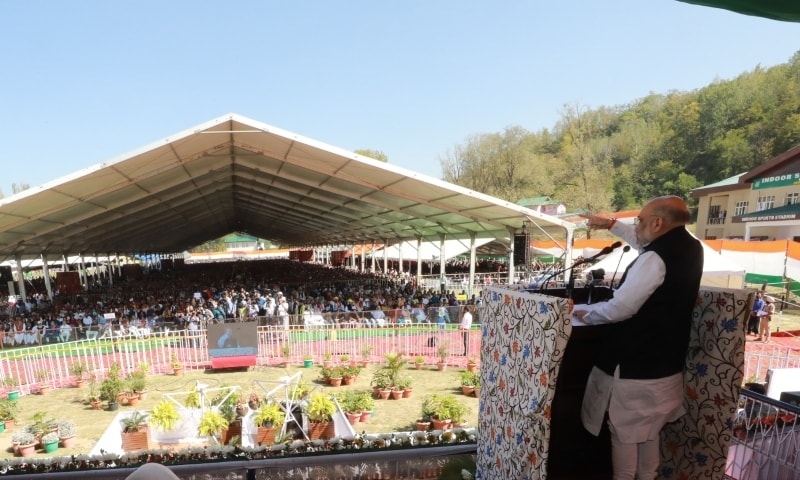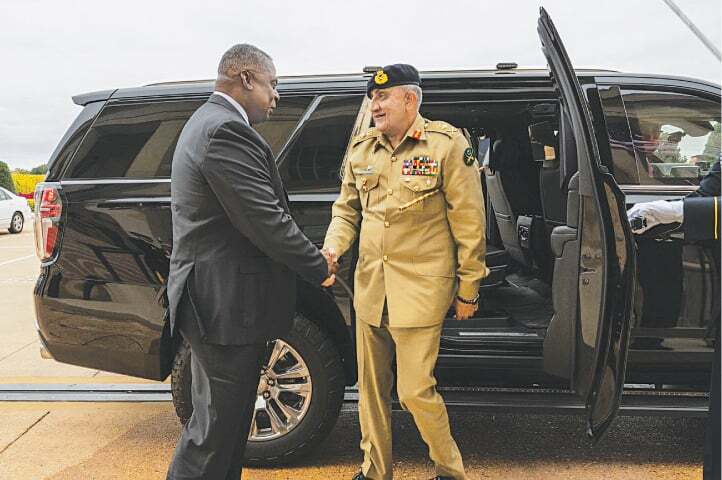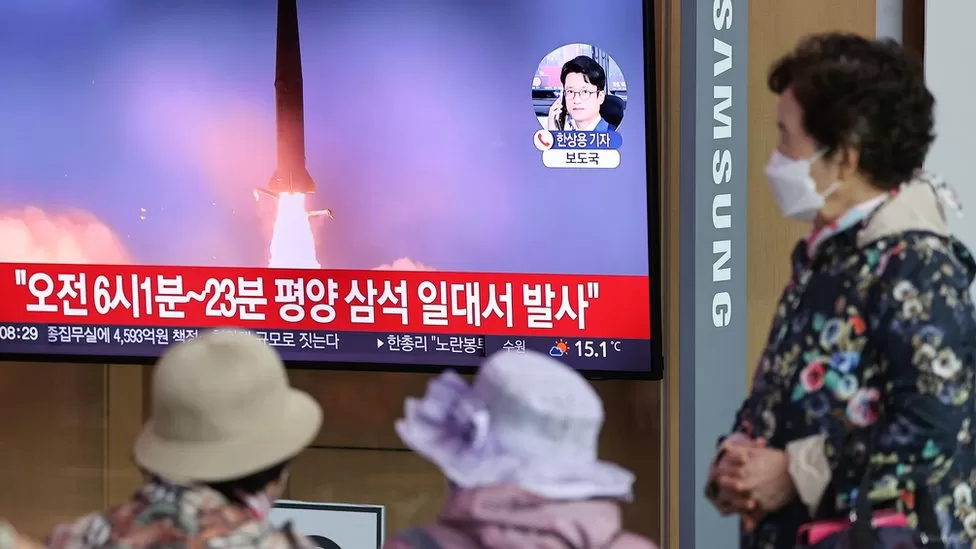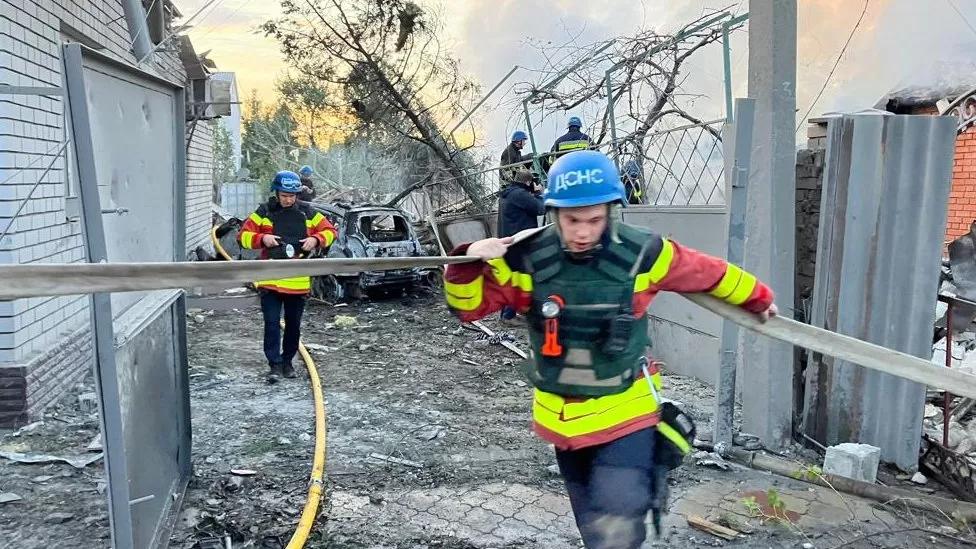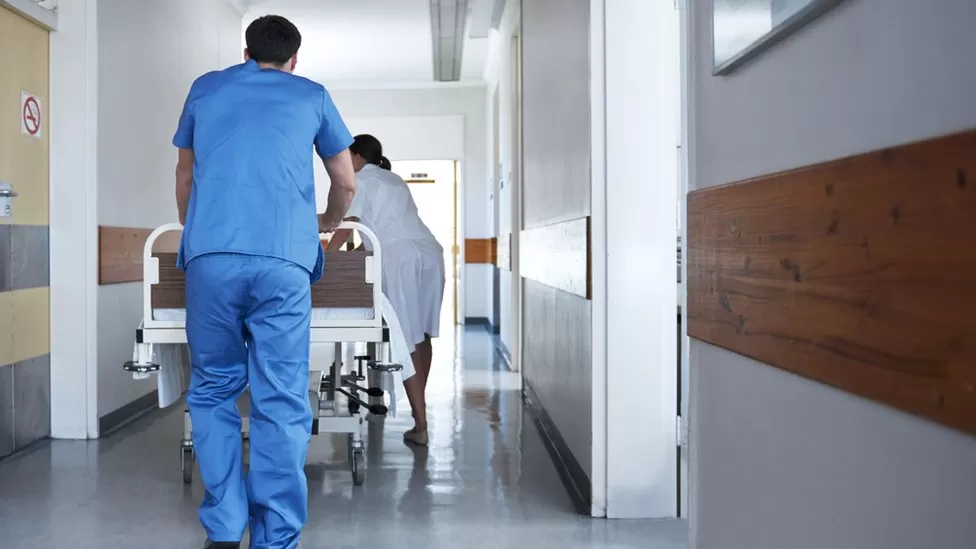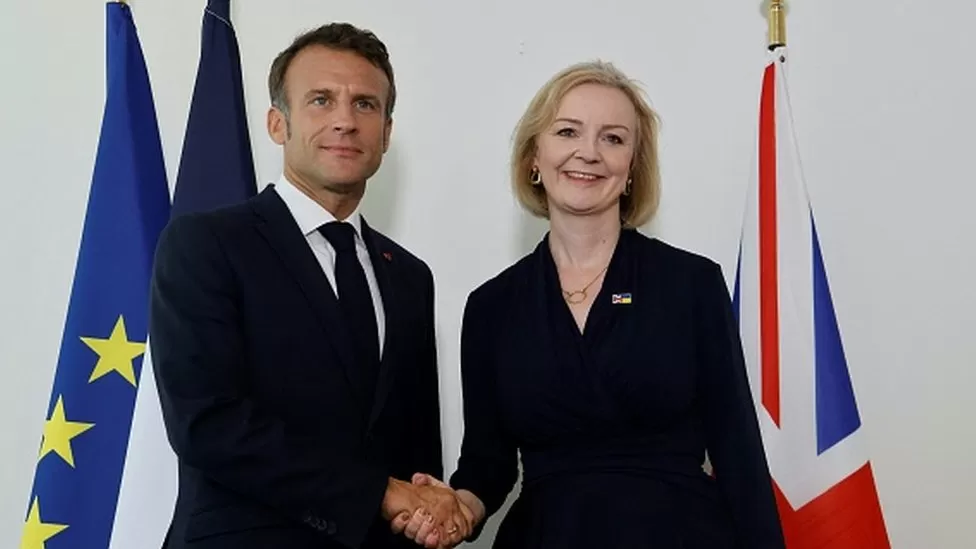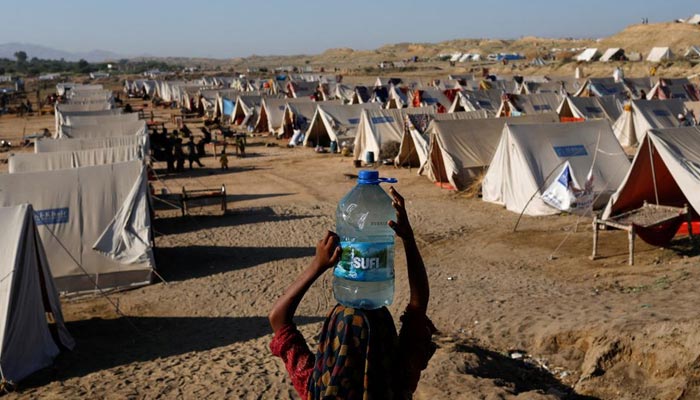Mr Biden said Russia’s President Vladimir Putin was “not joking” when he spoke of using tactical nuclear weapons after suffering setbacks in Ukraine.
The US was “trying to figure out” Mr Putin’s way out of the war, he added.
The US and the EU have previously said Mr Putin’s nuclear sabre-rattling should be taken seriously.
However, the US National Security Adviser Jake Sullivan last week said that, despite Moscow’s nuclear hints, the US had seen no signs that Russia was imminently preparing to use a nuclear weapon.
Ukraine has been retaking territory occupied by Russia during its invasion that began on 24 February, including in the four regions Russia illegally annexed recently.
For several months US officials have been warning that Russia could resort to the use of weapons of mass destruction, if it suffers setbacks on the battlefield.
During a speech last Friday, the Russian leader said the US had created a “precedent” by using nuclear weapons against Japan at the end of World War Two – a comment that would not have gone unnoticed by Western governments, our Russia editor Steve Rosenberg points out.
Mr Putin has also threatened to use every means at his disposal to protect Russian territory.
President Biden said the reason the Russian leader had not been “not joking” when he talked about using tactical nuclear, biological or chemical weapons – “because his military is, you might say, significantly underperforming”.
“For the first time since the Cuban Missile Crisis, we have a direct threat to the use of nuclear weapons, if in fact things continue down the path they’d been going,” Mr Biden told fellow Democrats.
“We have not faced the prospect of Armageddon since Kennedy and the Cuban missile crisis.”
In 1962, the US and the Soviet Union – under President John F Kennedy and Nikita Khrushchev – came close to a nuclear showdown over the deployment of Russian nuclear weapons in Cuba.
The confrontation is considered by many experts to be the closest the world has ever come to a full-scale nuclear war.
Mr Biden told fellow Democrats the use of tactical nuclear, biological or chemical weapons could quickly spiral out of control.
He was speaking at the New York home of James Murdoch, son of media mogul Rupert Murdoch, for the Democratic fundraising event.
Mr Putin is facing a very difficult picture on the battlefield. Even as he signed the final papers formally annexing four regions of Ukraine – Luhansk, Donetsk, Zaporizhzhia and Kherson – Kyiv’s forces were advancing inside those areas he had claimed.
Hundreds of thousands of men have been fleeing Russia rather than wait to be drafted to fight in Ukraine.
Ukraine’s President Volodymyr Zelensky has previously dismissed Moscow’s nuclear threats as a “constant narrative of Russian officials and propagandists”.
Paul Stronski, of the Carnegie Endowment for International Peace ,told the BBC that Russia’s “destabilising rhetoric” is aimed at deterring the West, even though the West appears resolved to push back on it.
There has also been some pushback against Moscow’s nuclear threats in Russia itself. An editorial in the country’s mainstream Nezavisimaya Gazeta newspaper was heavily critical of “senior Russian officials” for “talking about the nuclear button”.
“To allow, in thoughts and words, the possibility of a nuclear conflict is a sure step to allowing it in reality.”
Russia’s foreign ministry spokeswoman told reporters on Thursday that Moscow had not changed its position that nuclear war “must never be waged”.


